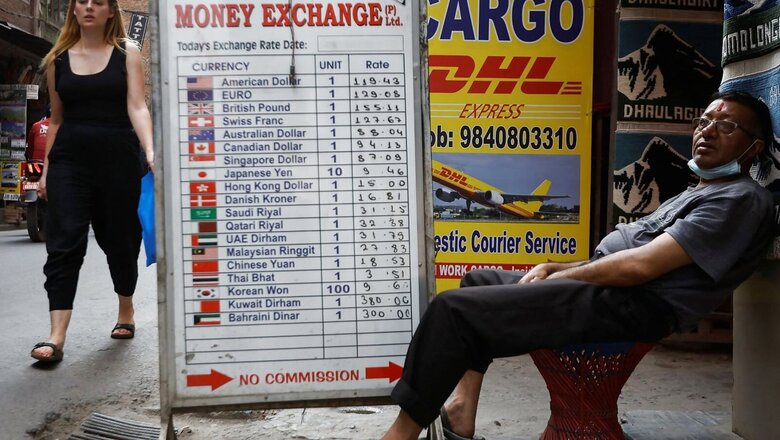
views
It doesn’t seem to be a good time for India’s neighbours. As Sri Lanka struggles to nip in the bud its economic and political crisis, news from Nepal has raised fears of uncertainty in the region again.
While the buzz of an impending financial crunch was in the air, Nepal’s latest move to formally ban the import of cars and other luxurious goods — including whisky and tobacco — and introduce two public holidays, citing a liquidity crunch and declining foreign exchange reserves, has got alarm bells ringing.
This despite assurances from the government that the economy will not go into a tailspin like Sri Lanka.
Since July 2021, Nepal has seen a decline in forex reserves due to the surging imports, declining inflows of remittance and meagre earnings from tourism and exports. By February 2022, the Himalayan country’s gross forex reserves had decreased 17 per cent to $9.75 billion from $11.75 billion in mid-July 2021, according to central bank figures.
The ban has come into effect starting Tuesday and will last until mid-July 2022, the end of the current fiscal year. A notice to this effect had been published in the Nepal Gazette, Deputy Governor of Nepal Rastra Bank, the central bank of the country, Bam Bahadur Mishra, told news agency PTI.
Earlier in March, the central bank had instructed the commercial banks not to import gold exceeding 10 kg per day, half the quantity compared to the previous provision.
Deputy Governor Bam said that the government has foreign currency reserves that are sufficient to support less than seven month of imports. It is because of growing imports of mainly food items and petroleum products that Nepal is facing a foreign currency crunch.
The dwindling foreign currency reserve is partly because of the considerable decline in foreign tourists due to the pandemic and the decrease in the inflow of remittance in recent times. The rising prices for oil in the international market due to the Russia-Ukraine war have exerted extra pressure on the foreign currency reserves of the country.
The government has also decided to introduce two public holidays – on Saturday and Sunday – every week, with effect from May 15.
The decision has been taken in a bid to save consumption of petroleum products and thereby save foreign currency. It has been decided to maintain office hours from 9:30 AM to 5:30 PM with effect from May 15 as a trial.
As per the existing practice, the government offices operate from 10 am to 5 pm in the summer six days a week, except for Friday when the office remains open only for five hours.
The developments have triggered concern, especially since they come at a time when Sri Lanka is facing its worst economic crisis since gaining independence from the UK in 1948. People have been protesting for weeks over lengthy power cuts and shortage of gas, food and other basic goods.
The government, however, is confident of riding out the crisis. During a parliamentary finance committee meeting in December, Finance Minister Janardan Sharma expressed confidence that conditions were favorable for achieving the targeted 7 per cent growth this year.
But not everyone seemed to agree. “Hyped consumer demand, supply chain management chaos, hoarding, hyper credit, rising inflation: bullwhip!!!” Finance Secretary Madhu Kumar Marasini tweeted. The World Bank estimates the country’s economy to grow by 3.7 percent in 2021-22, and 4.1 percent in 2022-23.
Nepal is now asking its citizens living abroad to deposit funds in domestic banks as part of efforts to ensure the financial system has enough liquidity and to preserve foreign exchange reserves.
In Nepal, remittances by overseas workers, which constitute nearly a quarter of the economy and are crucial for external payments, fell 3.0% to $5.3 billion between mid-July to mid-March, compared with a 5% increase in the same period a year earlier.
Nepal has also decided to accept $659 million in aid from the United States and about $150 million in soft loan from the World Bank.
Read all the Latest News here




















Comments
0 comment